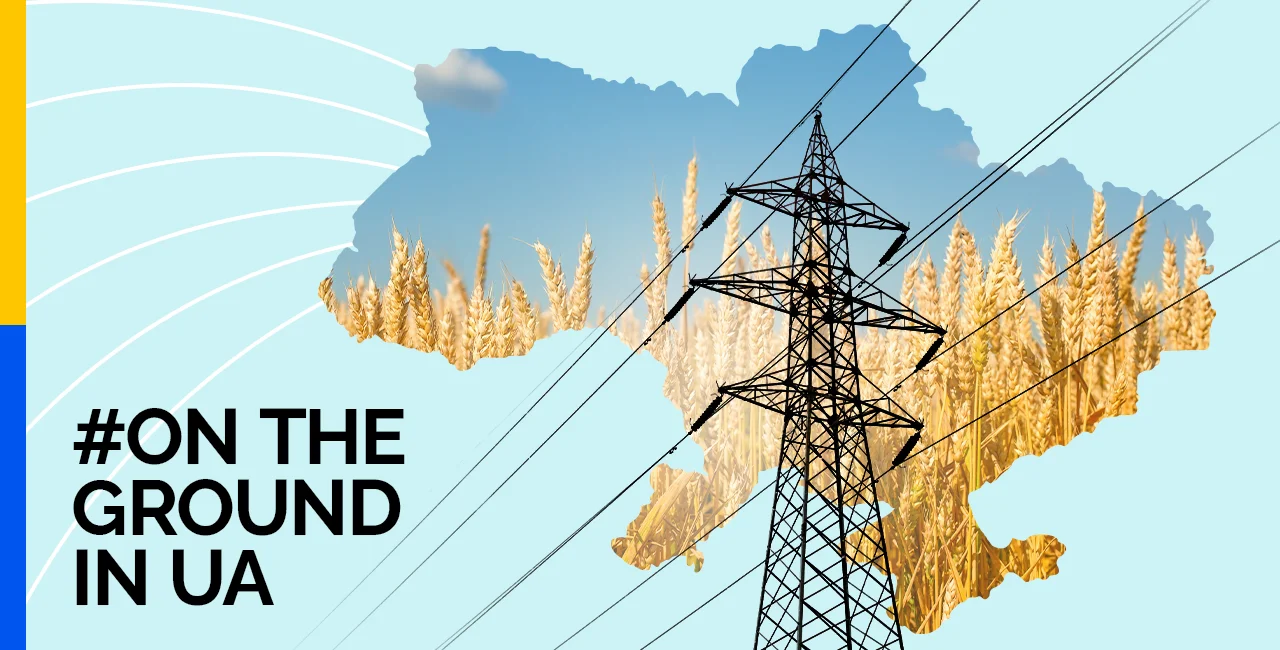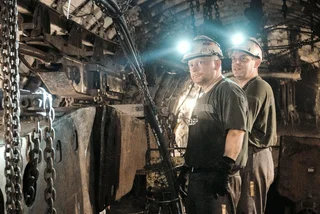After more than three years of full-scale war, Ukraine’s need for external support remains urgent—not just in humanitarian and military terms, but economically. As the country looks ahead to post-war reconstruction, demand is growing for foreign investment in key sectors like energy, construction, and agriculture.
Last week, Expats.cz joined a delegation led by the Czech Ministry of Foreign Affairs' Government Envoy for the Reconstruction of Ukraine Tomáš Kopečný. At three major business forums in Poland and western Ukraine, Czech industry leaders explored opportunities—and risks—associated with investing in a nation at war.
Why Czech companies are entering Ukraine
Speaking to Expats.cz at the Czech-Polish business forum in Rzeszów, Chairman of the Czech Confederation of Industry Jakub Weimann said there’s no time like the present to do business. “Czech exports to Ukraine have gone up one-third in the last two years, and doubled since 2022.”
The Czech delegation, supported by the Chamber of Commerce and the Confederation of Industry, included dozens of companies across multiple sectors. Their message was consistent: while the risks are real, so is the demand—and the opportunity.
“Ukraine has a highly qualified and financially accessible workforce,” Kopečný told Expats.cz. “And with supply chains now reoriented westward, investors have a window to enter the market before competition intensifies.”

Sectors with the highest returns: Energy, construction, agriculture
Several sectors stood out in the forums, with energy, healthcare, construction, water treatment, and agriculture frequently cited as offering the most immediate potential.
Energy is a particularly good area for investment: this sector is set to grow at about 300 percent in the coming years, due to the massive need for expansion. Business development manager of the energy-focused Suas Group Lukáš Klíma told Expats.cz: “The whole country needs a new power grid—here lies the opportunity.”
Markus Ciupek, vice-president of Czech-Ukrainian Chamber of Industry and Commerce“Green energy, agro-food processing, and construction are the most attractive sectors for a foreign investor at the moment”
Lviv, Ukraine’s largest city in the west, is attracting particular attention due to its proximity to the EU border and relatively stable conditions.
“Ukraine—especially Lviv—offers a skilled, English-speaking workforce, with strong potential in agriculture and automotive sectors, all boosted by Lviv’s strategic location close to the EU border and recovery momentum,” said Oleh Velkyn, deputy head of Lviv City Council.
Eastern promises
Green energy, construction, and agro-food processing emerged as the three most promising sectors across all forums attended. With Ukraine’s infrastructure in ruins and EU integration on the horizon, demand in these areas is set to explode.
Field lessons: Czech businesses are already thriving
The forum showcased companies already making a strong entry into the Ukrainian market.
“Our biggest market right now is Ukraine,” said a representative from Czech energy engineering firm Tedom. “The need for heat and energy is massive—production plants have been destroyed, and thermal capacity is low.”
Vladimir Glas, director of water-treatment firm Stemcon, said demand for their services has tripled since the war began. “With Ukraine expected to join the EU eventually, regulations are aligning—and business interest is rising.”
Even mid-sized Czech companies are expanding in Ukraine. Kopečný cited two success stories in energy: Škoda JS and MND, both of which have grown significantly since 2022. One Czech firm producing combined heat and power (CHP) units has seen “hundreds of percent growth,” he added.

How to manage risk when investing in a war zone
No investment in Ukraine comes without risk. Experts say the key is preparation and partnership.
“Do your research. Partner with a local or international chamber of commerce,” advised Ivana Javorová, External Relations Manager at the Confederation of Industry. “If you’re making large-scale investments, secure support from European financial institutions.”
Loans backed by institutions such as the European Investment Bank or Czechia’s National Development Bank can dramatically reduce borrowing costs—dropping interest rates from 18 to around 8 percent, according to Kopečný.
While the risks of war remain high, many in the Czech delegation expressed cautious optimism. “Risk is always part of business,” said Milan Závora of the Czech Chamber of Commerce. “But here lies opportunity. And Ukraine demonstrably and clearly offers huge amounts of it.”
That opportunity, however, is closely tied to timing. Ukraine holds enormous potential—particularly for those ready to move early, before the broader wave of investment begins. As envoy Kopečný put it:
“It is important to prepare for when the risk of investing in Ukraine gets lower, when Russian aggression eventually stops. That’s when more money will flow into Ukraine and stock will go up.”












 Reading time: 3 minutes
Reading time: 3 minutes 


















